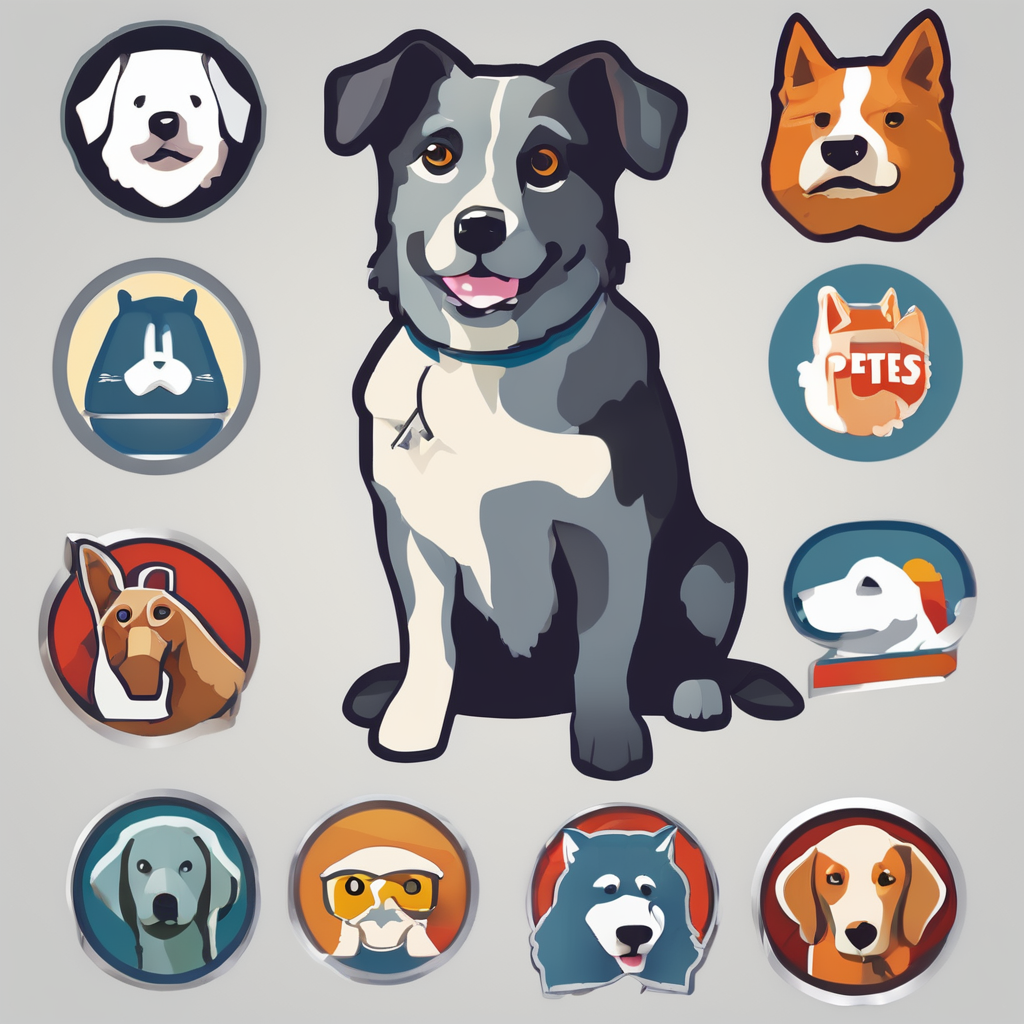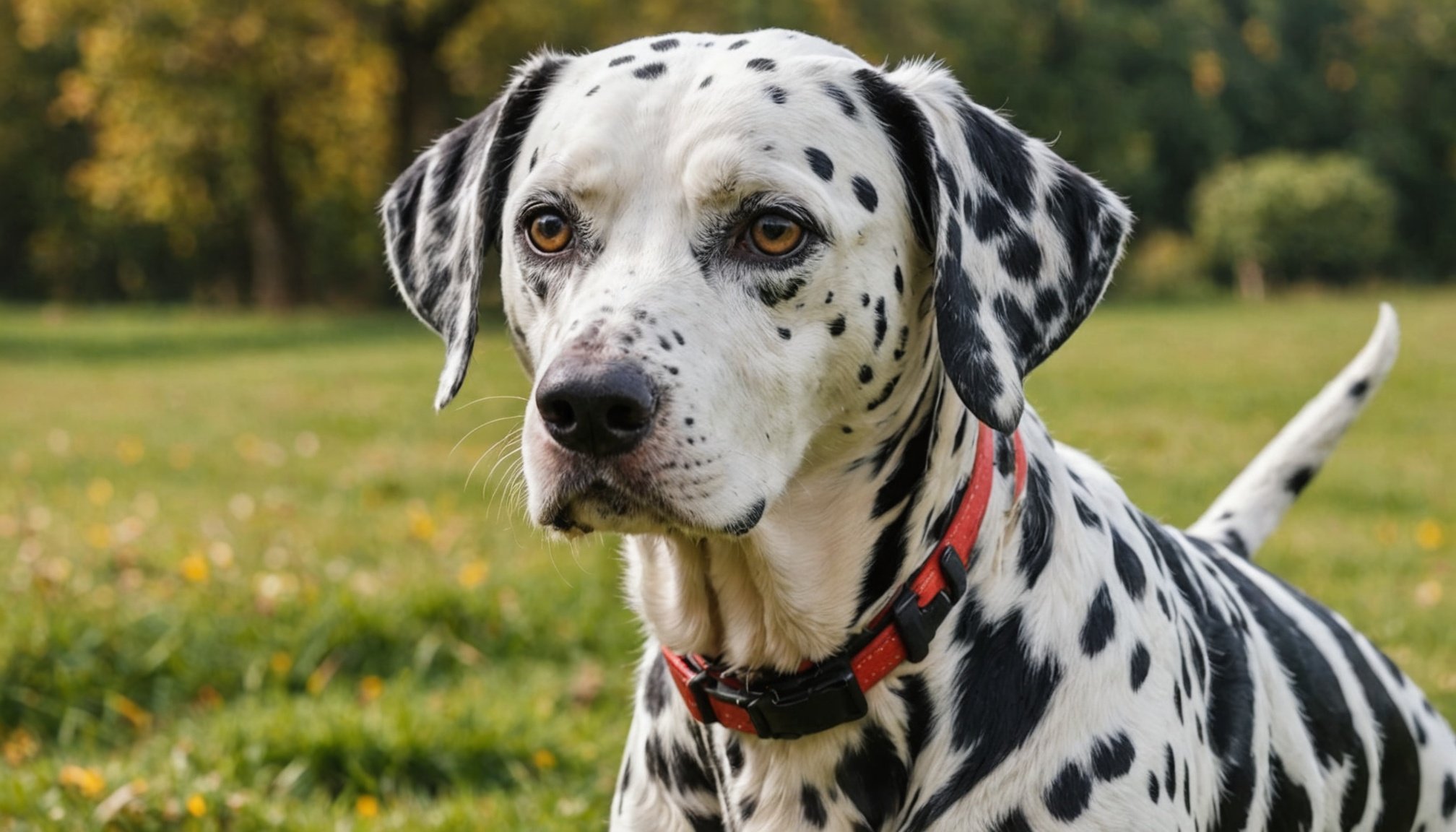Understanding Cognitive Decline in Senior Dalmatians
Cognitive decline in dogs is a crucial topic for owners, especially when dealing with senior Dalmatian care. As dogs age, they can experience changes akin to human dementia, impacting their behaviour and daily life. Canine Cognitive Dysfunction Syndrome (CCDS) parallels Alzheimer’s in humans and is characterised by various disruptions in daily functions.
The aging process in Dalmatians notably affects their mental health, as the brain undergoes organic changes. These changes can result in symptoms such as disorientation, changes in sleep-wake cycles, and altered social interactions. Understanding these shifts is vital for proper senior Dalmatian care.
In the same genre : Ultimate tips for bathing your bichon frise with sensitive skin: a safe and smart approach!
Owners may notice signs such as increased anxiety or confusion. Such behaviours are markers of cognitive decline, distinguishing them from ordinary aging effects like slower movements or grey hair. Recognising these symptoms early can lead to interventions that help maintain a Dalmatian’s quality of life.
A Dalmatian experiencing CCDS may become less responsive to commands or have trouble recognising familiar people or places. Awareness of these issues forms the foundation of effective care strategies, allowing for timely treatments to help maintain their cognitive functions.
Have you seen this : Essential tips for spotting and treating frequent skin problems in pet rabbits: your ultimate guide!
Emotional Impact on Dog Owners
Dealing with cognitive decline in dogs can be an emotionally taxing experience for pet owners. Understanding the emotional support available can help mitigate the stress involved. Many owners experience feelings of helplessness and sadness as they witness changes in their beloved pet’s behaviour, which can be overwhelming.
The process of dealing with a senior Dalmatian undergoing cognitive changes requires ample emotional resilience. Support groups and online forums are valuable resources, offering a community where experiences and strategies can be shared. Here, pet owners can receive emotional support, exchange advice on managing cognitive decline, and find solace in knowing they are not alone.
Coping strategies are essential for maintaining both the owner’s and the dog’s well-being. Techniques such as maintaining a consistent routine for the dog, seeking veterinary advice, and focusing on positive interactions can improve both emotional and cognitive health.
Building a support network within the pet owner community offers a significant buffer against the emotional challenges posed by cognitive decline in dogs. Thus, it’s important for dog owners to actively seek out these resources to help navigate this challenging phase in their pet’s life.
Recognizing Behavioral Changes
Understanding behavioral changes in senior Dalmatians is vital for pet owners. These changes often signal cognitive decline, distinct from normal aging. Dalmatians experiencing cognitive decline may show signs such as increased confusion, aimlessly wandering, or forgetting familiar routes during walks. Recognising these signs of cognitive decline is crucial as they differ from typical aging, which may involve slower movement or reduced stamina.
Early detection of these changes allows for timely interventions. Regularly observing dog behavior helps differentiate between natural aging and potential cognitive issues. Owners should watch for deviations from established routines or interactions. For instance, a Dalmatian normally excited by family members might become indifferent or overly anxious. Identifying these changes early ensures that support and treatment adapt to the dog’s evolving needs.
Maintaining a journal or using tracking apps can aid in documenting behavioral variations. Such tools provide a comprehensive overview, facilitating discussions with veterinarians. This proactive approach assists in managing a Dalmatian’s health as they age, allowing for adjustments to their care plan, enhancing their quality of life. Ensuring frequent observation and documentation is a crucial part of senior Dalmatian care.
Available Treatments and Interventions
Navigating the challenges of cognitive decline in dogs requires understanding the diverse treatment options available. For senior Dalmatian care, several interventions prove beneficial. Medications like selegiline have shown promise in mitigating symptoms of Canine Cognitive Dysfunction Syndrome (CCDS) by enhancing dopamine levels, thereby improving behaviour and cognitive functions.
Natural supplements, including omega-3 fatty acids and antioxidants, can support cognitive health by reducing inflammation and promoting neural protection. These dietary changes offer a holistic approach to managing cognitive decline, improving the Dalmatian’s vitality and alertness.
Behavioral therapies for dogs focus on maintaining mental stimulation through activities like training exercises or puzzle toys. These interventions help to slow cognitive deterioration and enhance the dog’s engagement with their environment. Maintaining a consistent daily routine also aids in reducing anxiety associated with cognitive decline.
It’s important to tailor treatments to individual dogs, considering their specific needs and responses. Collaborating closely with veterinarians ensures that interventions are effectively aligned with the dog’s health status and lifestyle, maximising the potential for improved quality of life. Proactive monitoring and timely adjustments to these strategies are crucial for maintaining cognitive health.
Monitoring Cognitive Health
Effectively monitoring dog health is critical for maintaining your Dalmatian’s cognitive well-being. Incorporating daily strategies into senior Dalmatian care allows pet owners to observe subtle shifts that may indicate underlying issues. Use of cognitive health check tools, such as behaviour tracking apps or checklists, can pinpoint changes in routine activities or social interactions.
Regular cognitive health checks not only facilitate early detection of anomalies but also reinforce routine assessments that might otherwise be overlooked. For instance, keeping a detailed log of your dog’s activities, responses to commands, and mood fluctuations aids in identifying patterns indicative of potential decline. This data serves as valuable communication during veterinarian visits, ensuring a comprehensive overview of your pet’s mental health.
Routine vet check-ups form an essential component of monitoring. Regular assessments by professionals provide insight into developments that might require intervention. Veterinarians can offer tailored advice and updates on your Dalmatian’s health status. Engaging actively in these check-ups fosters a preventative care mindset, catching issues before they significantly impact your dog’s quality of life. Implementing these monitoring strategies nurtures a proactive approach, empowering owners to maintain the mental health of their aging companions.
Potential Causes of Cognitive Decline
In senior Dalmatians, the causes of cognitive decline can vary, creating unique challenges in senior dog care. Understanding these causes is crucial for maintaining mental health. Both medical and environmental factors contribute significantly to cognitive decline in dogs. For instance, chronic health conditions like diabetes or heart disease can accelerate cognitive issues by impacting overall vitality and brain function.
Genetics also play a pivotal role, particularly in Dalmatians where hereditary factors can influence predisposition to canine cognitive dysfunction syndrome. A dog’s genetic makeup may determine susceptibility, making it important for owners to be proactive based on breed history.
Beyond genetics, poor nutrition and a lack of mental stimulation can exacerbate cognitive decline. Inadequate diets fail to provide necessary nutrients that support brain health, while insufficient stimulation leads to cognitive stagnation. A stimulating environment with interactive play and activities is essential for keeping a Dalmatian’s mind active and engaged.
By addressing these potential causes, owners can better tailor their care strategies, mitigating the effects of aging on their Dalmatian’s mental faculties. Emphasising balanced nutrition, regular veterinary check-ups, and engaging environments is essential for optimising the health and longevity of senior dogs.
Expert Insights and Case Studies
Understanding canine cognitive decline is enhanced by expert advice and real-life examples. Veterinary insights on cognition offer invaluable perspectives, aiding in managing senior Dalmatian care. According to leading veterinarians specialising in geriatric care, early intervention is key to mitigating cognitive decline effects. They recommend regular cognitive assessments and tailored treatment plans.
Interviews with these experts highlight the importance of combining medical and lifestyle interventions. Behavioral therapies for dogs, for instance, can delay cognitive deterioration, fostering mental engagement. One veterinarian noted how structured routines and enriched environments can support cognitive function, reflecting these strategies in case studies.
Real-life canine case studies provide practical insights. One example involved a Dalmatian named Max who showed improved cognitive responses after integrating cognitive-boosting diets and interactive toys into daily life. His owner observed a reduction in disorientation and anxiety with these adjustments, reinforcing the effectiveness of combined treatments.
Sharing experiences within the dog owner community is essential. Through forums and support groups, owners exchange strategies validated by both experts and case studies, fostering a communal learning environment. Engaging with these shared resources empowers pet owners to navigate the complexities of cognitive decline confidently.









